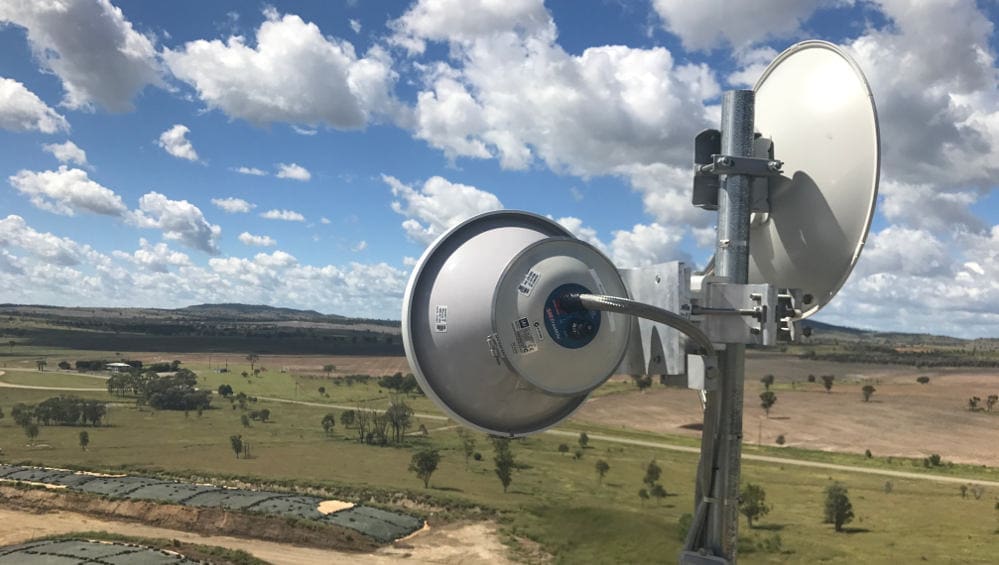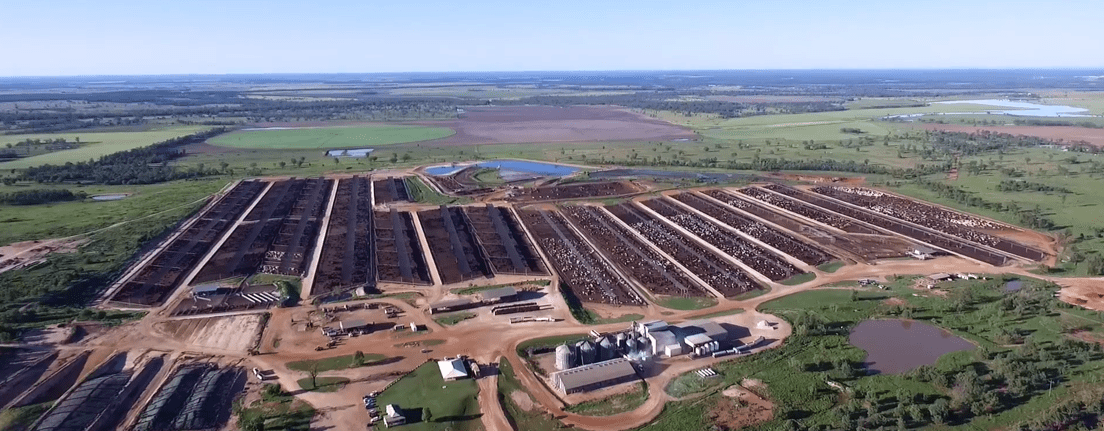
Broadband internet systems servicing two large Darling Downs feedlots
WHEN large lotfeeding operations like Sandalwood and Stanbroke Beef on Queensland’s Darling Downs invested in broadband internet, questions were posed around whether the service would really help the businesses increase productivity, and whether it was ‘only going be used for social media and Netflix by staff.’
But according to feedback from both companies, improved connectivity has not only boosted their productivity and staff retention, but also reduced maintenance, service costs and labour costs.
The Agriculture industry is a key focus for internet service provider MarchNet, and the company’s existing networks near Dalby, Chinchilla, Miles, Roma and Moura provide local businesses with cost-effective business-grade broadband internet services. The company has recently announced a network expansion in the Arcadia Valley.
MarchNet is a telecommunications service provider that delivers services exclusively to remote and regional businesses all around Australia.
Partnering with Meat & Livestock Australia, MarchNet works with service customers in the bush to report the outcomes of its connectivity projects, providing an opportunity to observe the direct and indirect effects.
As a part of its project with MLA, the company has been gathering feedback from ag clients and preparing quarterly reports on outcomes.
“Feedback has shown that the service is playing an important role in transforming our ag clients’ businesses,” MarchNet’s business development director Geoff Marsh said.
“Results highlight the importance of measurable improvements in those businesses,” he said.
One feedlot reported that reliable broadband internet enabled the business to have access to remote IT infrastructure and support, eliminating on-site IT hardware and support costs. The business estimated it was saving about $100,000 per year on these costs alone.
“Solving IT problems remotely and promptly is saving our feedlot around 1000 hours of overtime per year, which means an additional $50,000 in annual savings,” one manager said.
However the positive outcomes are not limited to cost savings alone. Another client reported that remotely monitoring irrigation telemetry enabled the business to take proactive actions, reducing problems like machinery bogging and stopping by 20pc, and consequently increasing yield return by approximately 15pc in two years.
“Depending on the size of the business, that means hundreds of thousands of dollars increase in revenue,” Mr Marsh said.

One of the large Darling Downs feedlots involved in the installation of broadband internet services
Staff retention
“Connectivity transforms lives and businesses together. Internet is an inseparable part of our lives, and it is no different for people in regional and remote areas. Employees these days demand a high level of connectivity to minimise the impact of isolation from friends, family, and head office,” he said.
“One of our ag clients reported that staff retention had improved by 29.5pc since we installed a broadband internet connection and provided wireless internet throughout the property,” Mr March said.
“We are witnessing a new era for the Australian agriculture industry. Technology is transforming ag businesses for more efficiency and productivity, and connectivity is one of the pillars of that technology transformation.”
Distance between the company’s clients and town centres was not the determining factor in applications.
“We use wireless technologies to deliver services and design smarter solutions for clients, where all other alternatives have limitations and high costs,” Mr Marsh said.
MarchNet is planning a roadshow across regional areas to explain the application of business-grade broadband internet services in the bush. To learn more about how the technology works, the company can be contacted on 1300 627 244. MarchNet’s website contact point is accessible here.


HAVE YOUR SAY